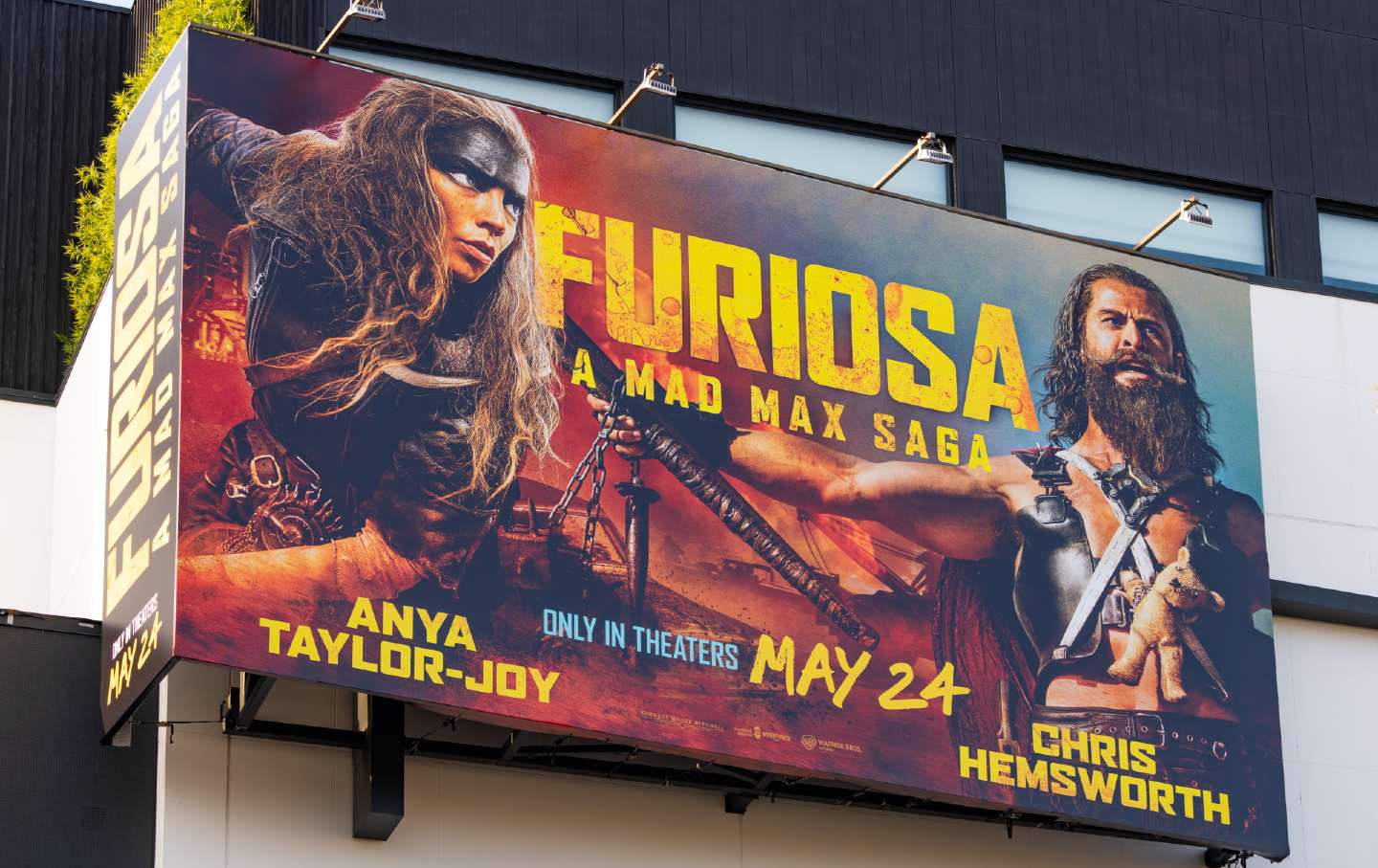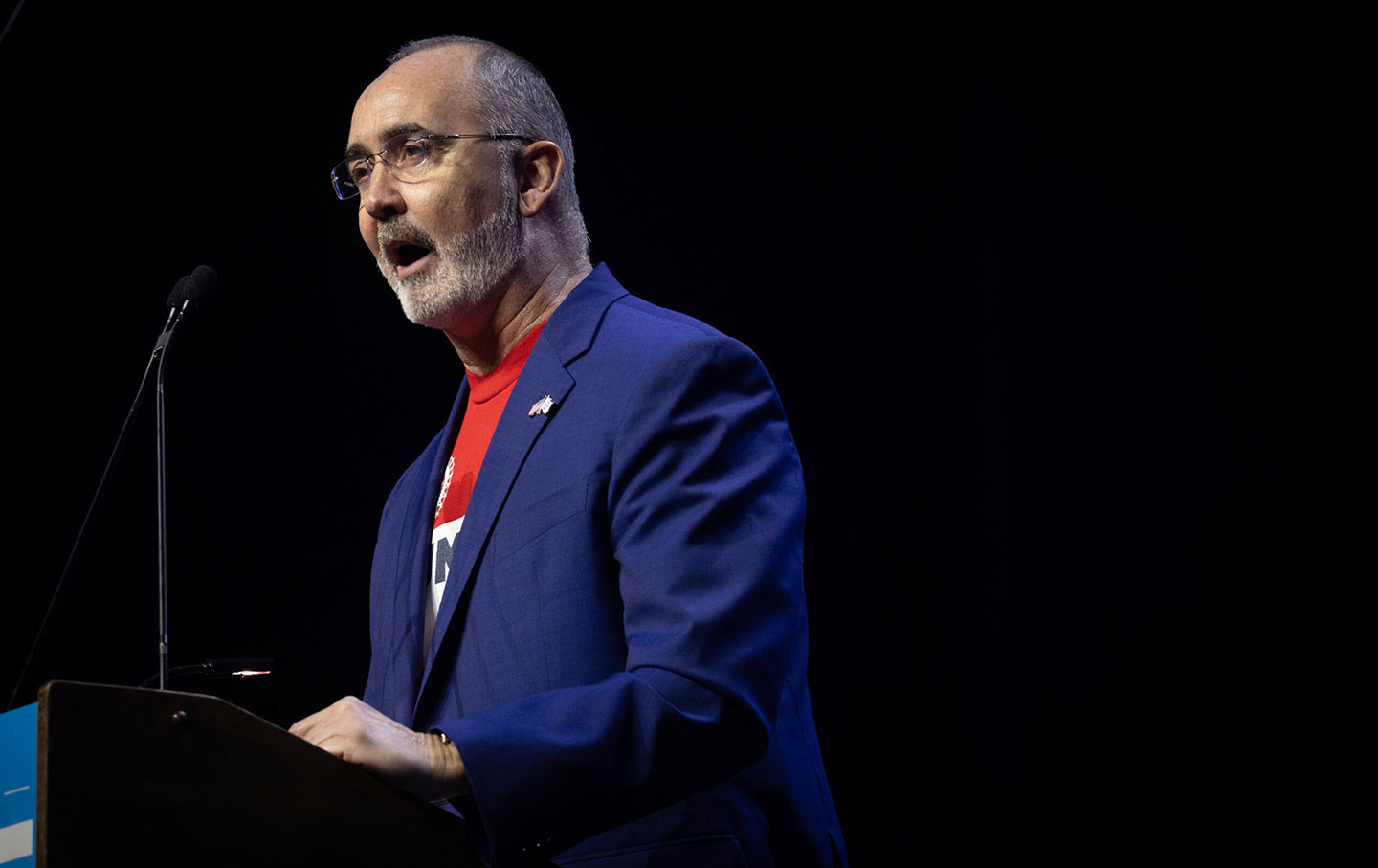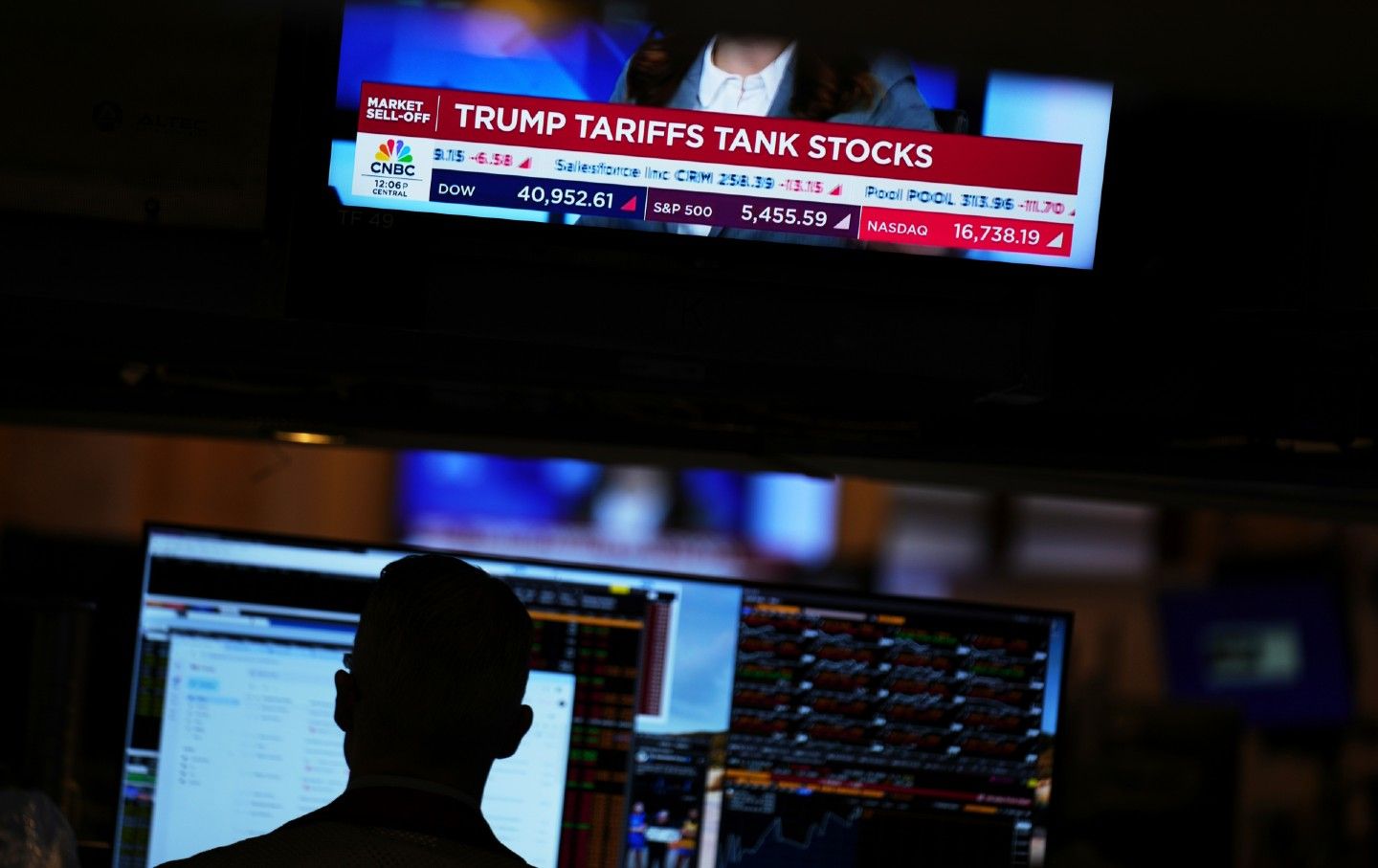Addiction to Blockbuster Franchises Is Killing Hollywood
Corporate consolidation means tired and increasingly unpopular sequels.

Traditionally, Memorial Day is the start of Hollywood’s money-making period, the summer season when big blockbusters rake in the cash that keeps the industry afloat. Already suffering this year from post-Covid anxiety about its future, Hollywood experienced the worst Memorial Day weekend opening in three decades. As The Wrap reports, “The No. 1 film for this weekend, ‘Furiosa,’ made just $32 million over the four-day period, making it the lowest No. 1 Memorial Day release since 1995, when the family film ‘Casper’ opened to $22 million before inflation adjustment.” In fact, when inflation is taken into account, Casper made $45 million in 2024 terms, making it much more successful than Furiosa.
This disappointing weekend came on the heels of a broader box office downturn. As The Hollywood Reporter observed, “May has been brutal in terms of moviegoing. For the May 1-19 corridor, domestic box office revenue is off nearly 20 percent from last year and 50 percent behind 2019.”
Furiosa, the fifth film in the venerable postapocalyptic Mad Max franchise, joins a long string of movies—many from long-standing franchises that were previously cash cows—that have either bombed or greatly underperformed. In the last two years, this includes Indiana Jones and the Dial of Destiny, Mission: Impossible—Dead Reckoning Part One, as well as a string of flops from the once-dominant superhero genre adapting works from Marvel and DC comics. As The Hollywood Reporter noted last January, “Superhero fare—the genre that helped prop up the business for well over a decade—no longer got a free pass as megabudget pics bombed, including The Flash and Aquaman and the Lost Kingdom, both from DC, and Marvel Studios’ The Marvels.”
Superhero movies and other franchises are all intellectual property (IP) films: valued because they can feed into sequels and merchandise, all under corporate control. In the past, they held the promise of surefire profit, much valued by studios in an industry increasingly reliant on blockbusters making back their cost quickly in large theaters. This model of reliance on IP blockbusters is now dying, leading to what The Hollywood Reporter calls “an existential crisis.” To be sure, some franchises are still profitable. Avatar II made more than $2.3 billion and Dune: Part Two made $711 (nearly double that of Dune: Part One, which made $406 million). But this sort of IP success is increasingly rare and unpredictable.
Even as traditional IP movies falter, the big hits of the last two years have tended to be “unicorn” movies, unpredictable breakout hits, notably Oppenheimer, Taylor Swift’s The Eras Tour, and Barbie. Oppenheimer made nearly $1 billion worldwide, while Barbie made nearly $1.45 billion. The problem for Hollywood is that none of these movies offer a predictable model the way the Marvel Cinematic Universe did in its prime. Oppenheimer’s success doesn’t mean that a movie about another physicist—say, Max Planck or Enrico Fermi—would do well. Barbie, based on a popular Mattel doll, was an IP movie, but its success was surely due not just to the brand name but also the auteur’s freedom granted to director Gerta Gerwig, who unexpectedly turned the movie into a feminist parable. With its addiction to IP, Hollywood is planning to launch many other movies based on Mattel toys (Hot Wheels, Magicbox, and View-Master, among many others), but it seems improbable that Barbie’s magic will rub off on them. The smash box office of The Eras Tour is based on the singular popularity of Taylor Swift.
Hollywood’s current problem isn’t just the failure of an odd film here and there. After all, box office bombs are nearly as old as the movies themselves, with famous stinkers like The Fall of the Roman Empire (1964), Ishtar (1986), and Battlefield Earth (2000) littering the history of moviemaking. But these disappointments were in the context of an otherwise thriving industry. Hollywood today has become addicted as never before to blockbuster IP franchises.
In the May issue of Harper’s Magazine, the historian Daniel Bessner provided an exceptionally sharp account of the roots of the current Hollywood crisis—one that has become even more salient after the disastrous Memorial Day box office. Bessner details the political economy of Hollywood, an industry where a combination of union strength and government regulation once provided middle-class security to generations of cultural workers. But with the Reagan era deregulation of the 1980s, coupled with the rising power of private equity firms and the broader financialization of the economy, Hollywood has become much more economically stratified, with a handful of corporations enjoying near-monopoly power.
This is a process that goes back decades. Filmmaking is an art form, but it is also a business, one that is unusually sensitive to market pressures. In retrospect, we can see that the great era of 1970s Hollywood—which saw the flowering of auteurs such as Martin Scorsese, Francis Ford Coppola, Robert Altman, and Elaine May— was destroyed by the Volcker Shock of 1979, when the rapid rise of interest rates pushed by Federal Reserve chair Paul Volcker led to a consolidation of studios and a much more risk-adverse Hollywood. Not surprisingly, the 1980s would be dominated by action-adventure spectacles rather than searing critiques of American society like Taxi Driver (1976).
The process that started in the 1980s only accelerated after the great recession of 2008. Summing up the current situation, Bessner points out: “The film and TV industry is now controlled by only four major companies, and it is shot through with incentives to devalue the actual production of film and television.”
Private equity is based on debt, which means the resulting quasi-monopolies are overly cautious and obsessed with short-term profits. As a result, the IP model became the dominant form of filmmaking in the 21st century. Bessner notes:
Executives…increasingly believed that they’d found their best bet in “IP”: preexisting intellectual property—familiar stories, characters, and products—that could be milled for scripts. As an associate producer of a successful Aughts IP-driven franchise told me, IP is “sort of a hedge.” There’s some knowledge of the consumer’s interest, he said. “There’s a sort of dry run for the story.” Screenwriter Zack Stentz, who co-wrote the 2011 movies Thor and X-Men: First Class, told me, “It’s a way to take risk out of the equation as much as possible.”
[Scriptwriter John Brancato], who himself found work on Catwoman and two movies in the Terminator franchise in the early Aughts, told me that by the middle of the decade, no one wanted original scripts. IP had proved extremely valuable on the international market—increasingly important as domestic box-office growth stagnated over the course of the Aughts and 2010s—and it began to make up a greater and greater share of studio output.
This model worked well enough for the first two decades of this century. But audiences are souring on a diet of endless sequels and remakes. And if the IP model is dying, it’s not clear what will replace it—especially since the other emerging model, streaming, is itself in deep trouble. Over the last decade, it seemed possible that streaming services (headed by Netflix but also including Apple, HBO Disney and other competitors) could clear a new path for quality filmmaking free of the vices of IP franchises. After all, prestige TV, in the form of HBO shows such as The Sopranos and The Wire, had emerged as an art form celebrated in its own right.
But the growth of streaming services was also fueled by the low interest rates instituted in response to the 2008 recession. This era came to an end in 2022 as the Federal Reserve jacked up interest rates to v down both inflation and wage growth.
High interest rates hurt streaming services, along with other tech industries, because they are fledgling businesses with no track record of strong profits. Their expansion was driven by liquid venture capital needing to park money in speculative ventures that could one day achieve market dominance. Once easy money dried up, streaming services lost access to the funds that drove their rapid growth and ability to create a seemingly endless array of new content. Since then, the streaming services have been sinking, and laying off employees. For cultural workers, it has become increasingly hard to make a middle-class living in Hollywood.
Popular
“swipe left below to view more authors”Swipe →As Bessner sums up:
The industry as a whole is now facing a broad contraction. Between August 2022 and the end of last year, employment fell by 26 percent—more than one job gone in every four. Layoffs hit Warner Bros. Discovery, Netflix, Paramount Global, Roku, and others in 2022. In 2023, firings swept through the representation giants United Talent Agency and Creative Artists Agency; Netflix, Paramount Global, and Roku again; plus Hulu, NBCUniversal, and Lionsgate. In early 2024, it was announced that Amazon was cutting hundreds of jobs from its Prime Video and Amazon MGM Studios divisions. In February, Paramount Global laid off roughly eight hundred people. It’s unclear which streamers will survive. As James Dolan, the interim executive chair of AMC Networks, told employees in late 2022 as he delivered news of massive layoffs—roughly 200 people (20 percent of U.S. staff) would lose their jobs—“the mechanisms for the monetization of content are in disarray.”
To paraphrase Antonio Gramsci, the problem for Hollywood is that the old revenue stream is dying and the new one struggles to be born (indeed, could even die in its cradle). The crisis of Hollywood is fundamentally the crisis of capitalism itself. Like all previous junctures where capitalism fell into crisis, the only solution is outside intervention, whether in the form of government regulation (perhaps to break up the quasi-monopolies) or labor activism (some of which we’ve seen in recent strikes by Hollywood writers and actors).
At the end of his article, Bessner speculates on what form government action or labor militancy could take, but he is rightly pessimistic about any short-term solution. The crisis will have to get much worse before we develop a utopian imagination large enough to solve it.
Hold the powerful to account by supporting The Nation
The chaos and cruelty of the Trump administration reaches new lows each week.
Trump’s catastrophic “Liberation Day” has wreaked havoc on the world economy and set up yet another constitutional crisis at home. Plainclothes officers continue to abduct university students off the streets. So-called “enemy aliens” are flown abroad to a mega prison against the orders of the courts. And Signalgate promises to be the first of many incompetence scandals that expose the brutal violence at the core of the American empire.
At a time when elite universities, powerful law firms, and influential media outlets are capitulating to Trump’s intimidation, The Nation is more determined than ever before to hold the powerful to account.
In just the last month, we’ve published reporting on how Trump outsources his mass deportation agenda to other countries, exposed the administration’s appeal to obscure laws to carry out its repressive agenda, and amplified the voices of brave student activists targeted by universities.
We also continue to tell the stories of those who fight back against Trump and Musk, whether on the streets in growing protest movements, in town halls across the country, or in critical state elections—like Wisconsin’s recent state Supreme Court race—that provide a model for resisting Trumpism and prove that Musk can’t buy our democracy.
This is the journalism that matters in 2025. But we can’t do this without you. As a reader-supported publication, we rely on the support of generous donors. Please, help make our essential independent journalism possible with a donation today.
In solidarity,
The Editors
The Nation









